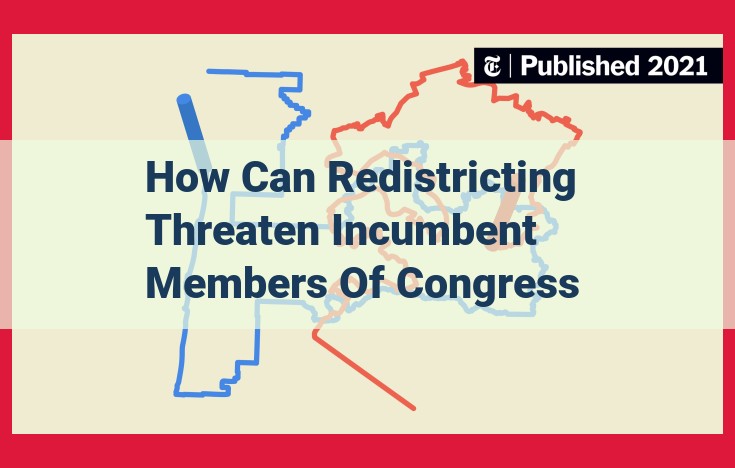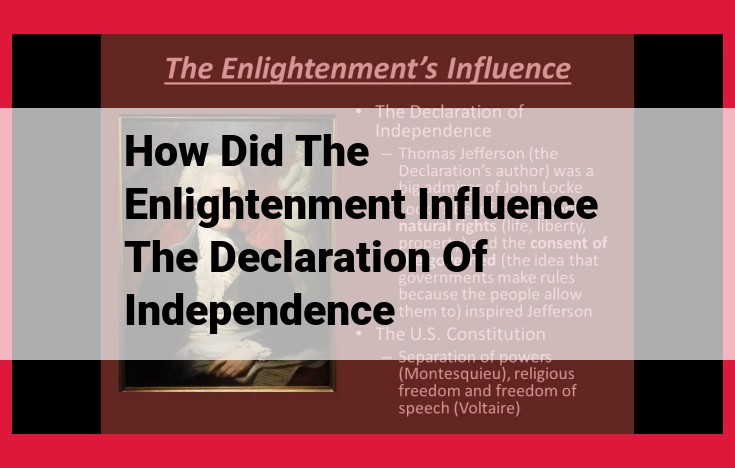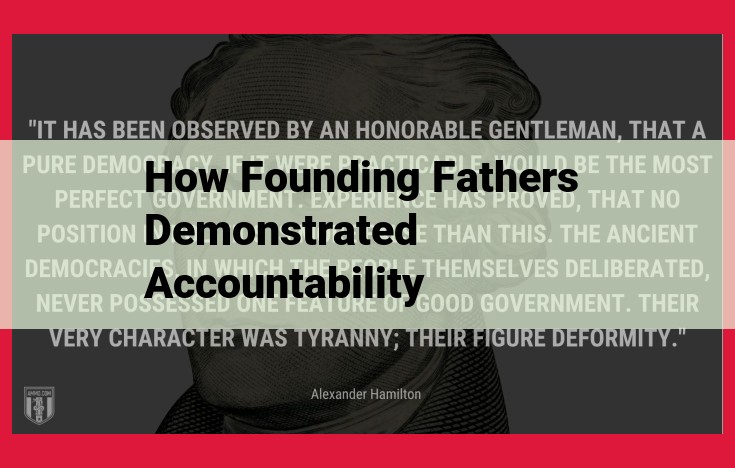Redistricting, the redrawing of electoral district boundaries, can jeopardize incumbent members of Congress by altering the political makeup of their constituencies. If a district is reconfigured to include a larger number of constituents from the opposing party, the incumbent may face a significant electoral challenge. Gerrymandering, the intentional manipulation of district boundaries to favor a particular political party, can further amplify this threat, reducing the incumbent’s chances of reelection.
The Census Bureau: The Foundation of Redistricting
In the intricate world of redistricting, the U.S. Census Bureau stands as the pivotal entity shaping the electoral landscape. Their meticulous collection of population data forms the very foundation upon which district boundaries are drawn, ultimately influencing the balance of power in government.
The Census Bureau’s decennial census serves as a comprehensive snapshot of the nation’s population. Every ten years, its dedicated staff embarks on a colossal undertaking, gathering data from every corner of the country. This treasure-trove of information provides granular insights into population distribution, age, race, and socioeconomic characteristics.
Armed with this crucial data, the Census Bureau meticulously analyzes and processes it, producing detailed statistical reports and maps. These invaluable resources then become the guiding force for districting commissions and legislative bodies tasked with establishing new electoral boundaries.
By providing accurate and comprehensive data, the Census Bureau ensures that redistricting efforts are grounded in an objective understanding of population trends and demographic shifts. This foundation is essential for creating fair and equitable districts that truly represent the diverse voices of the American people.
Entities Involved in Redistricting: The Role of the Department of Justice
Redistricting, the redrawing of electoral district boundaries, is a complex process that involves various entities. Among them, the Department of Justice (DOJ) plays a crucial role in safeguarding the rights of all Americans during this process.
The DOJ is tasked with enforcing the Voting Rights Act, a landmark legislation that prohibits racial discrimination in voting practices, including redistricting. This responsibility stems from the history of racial oppression in the United States, where gerrymandering—the manipulation of district boundaries to favor a particular political party or demographic group—was used to suppress the votes of minority communities.**
The DOJ closely monitors redistricting plans to ensure that they comply with the Voting Rights Act. The department has the authority to review proposed district maps and challenge those that appear to discriminate against racial minorities. If a plan is found to be discriminatory, the DOJ can take legal action to block its implementation or require changes.
In addition to enforcing the Voting Rights Act, the DOJ also provides technical assistance to state and local governments on redistricting best practices. The department’s Redistricting Toolkit offers resources and guidance to help ensure that district boundaries are fair, transparent, and based on objective criteria.
By enforcing the law and providing guidance on redistricting, the Department of Justice plays a vital role in protecting the rights of all voters. The department’s efforts help to ensure that every citizen has an equal opportunity to participate in the electoral process and that their votes count fairly.
Entities Involved in Redistricting: The Supreme Court’s Role
The United States Supreme Court:
-
Supreme Authority in Redistricting: The Court holds ultimate power in interpreting redistricting laws and determining their constitutionality. Its decisions shape the legal framework for redistricting processes across the nation.
-
Enforcement of Constitutional Principles: The Court ensures that redistricting plans comply with the Equal Protection Clause, which prohibits discrimination based on race, ethnicity, or political affiliation. It also safeguards the right to vote under the Voting Rights Act.
-
Landmark Cases: The Court’s landmark rulings have had a profound impact on redistricting. In Baker v. Carr (1962), it declared that redistricting disputes could be brought before federal courts. Bush v. Gore (2000) solidified the Court’s role in resolving presidential election disputes, including those involving redistricting.
-
Balance of Power: The Court’s decisions often reflect a delicate balance between protecting minority rights and preserving the political process. Its justices weigh competing interests, considering the fairness and representativeness of redistricting plans.
-
Future Influence: The Supreme Court’s ongoing involvement in redistricting cases ensures that constitutional principles and electoral equity remain at the forefront of this critical process. Its rulings will continue to shape the way districts are drawn and the representation of citizens in government.
Democratic National Committee (DNC) and Republican National Committee (RNC): Advocate for and participate in the redistricting process to enhance their electoral chances.
Political Parties and Redistricting: The Electoral Battlefield
Redistricting, the process of redrawing electoral boundaries, is a crucial aspect of shaping the American political landscape. One of the most influential players in this process is political parties, particularly the Democratic National Committee (DNC) and the Republican National Committee (RNC).
Political parties have a vested interest in redistricting because it can significantly impact their electoral prospects. By strategically redrawing district lines, parties can create favorable conditions for their candidates and maximize their chances of winning elections. This self-serving strategy, known as partisan gerrymandering, involves manipulating district boundaries to group voters of a particular party into a few compact districts, while dispersing the opposing party’s voters across multiple districts.
As a result, partisan gerrymandering can lead to uncompetitive elections and undermine the principle of one person, one vote. In extreme cases, it can result in districts that are so lopsided that one party is virtually guaranteed to win, regardless of the overall popular vote. This practice raises concerns about the fairness and integrity of the electoral process and can disenfranchise voters.
Despite the potential for abuse, political parties play a legitimate role in redistricting. They have the expertise and resources to analyze voting patterns and propose new district maps. Their involvement in the process ensures that the interests of their constituents are represented. However, it is essential for parties to approach redistricting with a commitment to fairness and transparency.
Redistricting is a complex and contentious process, but the involvement of political parties is a necessary part of a democratic system. By carefully balancing party interests with the principles of fair representation, we can strive for a redistricting process that upholds the integrity of our elections and the rights of all voters.
The Guardians of Fair Representation: Brennan Center for Justice and NAACP in Redistricting
Redistricting, the redrawing of electoral boundaries, holds immense significance in shaping the political landscape of our nation. This complex process involves a multitude of entities, each playing a critical role. Among these actors, the Brennan Center for Justice and the National Association for the Advancement of Colored People (NAACP) stand as unwavering advocates for fairness and equity in redistricting, ensuring that the voices of all citizens are heard.
The Brennan Center for Justice, a nonpartisan law and policy institute, has dedicated itself to safeguarding voting rights and promoting fair elections. Their experts are deeply involved in the redistricting process, providing legal analysis and technical assistance to states and advocates. By scrutinizing proposed maps and challenging gerrymandering—the manipulation of district lines to favor one party or candidate—the Brennan Center fights to ensure that every citizen has an equal opportunity to participate in government.
The NAACP, a leading civil rights organization, has a long and unwavering commitment to protecting the rights of minority voters. In the context of redistricting, the NAACP works tirelessly to prevent the dilution of minority voting power. They engage in litigation, advocacy, and community organizing to challenge discriminatory maps and ensure that all communities have fair representation in government.
Together, the Brennan Center for Justice and the NAACP form a formidable force in the fight for fair redistricting. Their unwavering dedication to protecting the rights of minority voters and their incisive legal analysis have earned them a reputation as trusted voices in the redistricting process. As we grapple with ongoing redistricting efforts, their continued vigilance is paramount to ensuring that our democracy remains truly representative of all citizens.
Redistricting: A Complicated Puzzle with Diverse Players
The intricate process of redistricting involves a complex web of entities, each with distinct roles and motivations. Amidst this tapestry of organizations and individuals, Election Law Attorneys stand out as indispensable figures navigating the legal labyrinth of redistricting disputes.
Understanding the Legal Quagmire
Redistricting is a constitutionally mandated task, imbued with the profound responsibility of ensuring equal representation and preventing discrimination. Yet, the process is inherently political, inevitably attracting challenges from those who feel their voices have been marginalized.
In this highly charged arena, Election Law Attorneys serve as guiding lights, providing expertise in the intricacies of redistricting laws and constitutional principles. They represent clients who allege violations of their voting rights or those whose communities have been unfairly divided.
Representing Diverse Voices
Election Law Attorneys advocate for a wide range of clients impacted by redistricting. They represent:
- Political parties: Seeking to maximize their electoral chances
- Minority groups: Fighting against gerrymandering and discrimination
- Individuals: Whose voting rights have been infringed upon
By litigating these cases, Election Law Attorneys play a crucial role in safeguarding the integrity of our electoral system and upholding the fundamental principles of democracy.
Navigating the Legal Maze
Redistricting disputes are often complex and contentious, requiring attorneys with deep understanding of election law, constitutional law, and the intricacies of redistricting itself. Election Law Attorneys must navigate the intricate legal landscape, analyzing data, scrutinizing maps, and presenting persuasive arguments in court.
Their expertise extends beyond the courthouse, as they also engage in public education and advocacy, promoting awareness of redistricting issues and their impact on voting rights. By shedding light on the legal complexities, they empower citizens to participate more effectively in the redistricting process and ensure that their voices are heard.
Election Law Attorneys are indispensable players in the intricate game of redistricting. Their knowledge of the law, their unwavering commitment to fair representation, and their ability to navigate the legal maze make them essential guardians of our electoral system. As redistricting continues to be a subject of intense debate, the role of Election Law Attorneys will only grow more critical in the years to come.
Constitutional Law Scholars: Guardians of Redistricting Fairness
In the intricate tapestry of redistricting, constitutional law scholars play a pivotal role as sentinels of fairness and equality. Their expertise in the constitutional principles that govern redistricting ensures that the process remains accountable to the highest ideals of our democracy.
Constitutional law scholars serve as beacons of legal wisdom, providing expert guidance on the thorny issues that arise in redistricting. They delve into the complexities of equal protection, scrutinizing district boundaries to ensure that they do not discriminate against voters based on race or other protected characteristics. Their incisive analyses help safeguard the freedom to vote, ensuring that all citizens have an equal opportunity to participate in our political process.
Through their scholarly articles, public lectures, and courtroom testimony, constitutional law scholars shape the legal landscape of redistricting. They offer nuanced interpretations of constitutional provisions, illuminating the contours of permissible and impermissible districting practices. Their contributions help courts and legislatures navigate the delicate balance between political representation and constitutional principles.
By wielding their legal acumen, constitutional law scholars play an indispensable role in ensuring that the redistricting process adheres to the highest standards of fairness, equity, and constitutional integrity. They serve as guardians of our democracy, ensuring that the lines we draw on maps reflect not just political expediency but the fundamental principles upon which our nation was founded.




